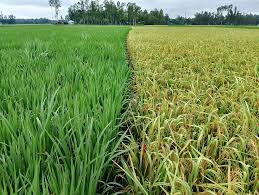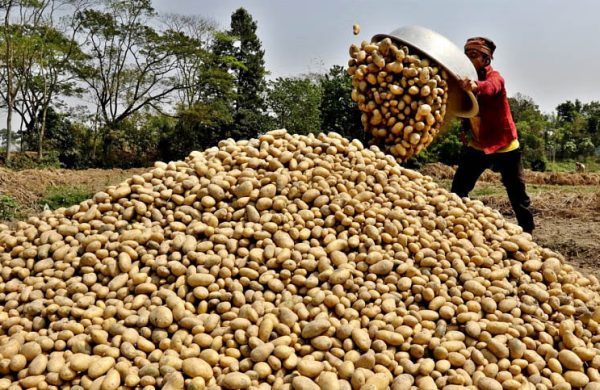Double-cropping system enhancing farmers’ incomes, Agri-tourism
- Update Time : Thursday, February 6, 2025

TDS Desk:
Incorporating oilseeds like mustard and sunflower into traditional double-cropping system is transforming the livelihoods of farmers alongside promoting agri-tourism.
The Rice Farming Systems Division of Bangladesh Rice Research Institute (BRRI) is spearheading this effort, demonstrating how maximising land use can significantly increase farmer incomes and contribute to the nation’s edible oil production.
As part of its regular activities, the Farming Systems site in Kaliganj upazila of Gazipur district has been implementing year-round vegetable cultivation on homesteads of 10 marginal and smallholder farmers, along with ginger and turmeric cultivation in shaded areas, orchard management, poultry and livestock rearing and integrated fish farming in small ponds.
Women actively participate in these initiatives and their children also engage during their free time. This has helped farmers meet their daily vegetable and protein needs while generating additional income. Under the research initiatives of the Rice Farming Systems Division, a farmer successfully cultivated vegetables throughout the year on 9.5 decimals of land within 10-decimal homestead each, investing Tk2,000 and earning a profit of Tk6,000.
BRRI Director General Dr Mohammad Khalequzzaman emphasised that to make agriculture more profitable, no land should remain fallow at any time of the year.
A significant portion of land remains uncultivated between the Aman and Boro rice seasons. To address this, these fallow lands should be utilised for growing winter oilseeds such as mustard and sunflower, he said.
“By incorporating mustard and sunflower into the Boro-fallow-T Aman cropping pattern, the country could produce up to 3.60 million tonnes of oilseeds, yielding approximately 1.04 million tonnes of edible oil annually,” Khalequzzaman said.
A discussion and field day on improving farmers’ livelihoods through integrated farming systems was held at Sauraid village of Kaliganj on Wednesday.
Over 100 local farmers attended the event where the BRRI director general was the chief guest with Dr Md Ibrahim, head of the Rice Farming Systems Division, in the chair.
In his speech, Dr Ibrahim highlighted that before this initiative, farmers consumed an average of 50 kg of vegetables per year, shared 5 kg with others and sold 40 kg. With the intervention, these numbers have increased to 111 kg, 12 kg and 58 kg respectively.
“Farmers have also been cultivating ginger and turmeric on 0.5 decimals of shaded homestead land, producing an average of 82 kg of turmeric and 33 kg of ginger, with an investment of Tk2,000 yielding a profit of Tk6,000,” he said.
Before this programme, farmers produced an average of 47 kg of fruit per year.
However, with improved orchard management and the planting of high-yield fruit trees, production has risen to 90 kg annually. Additionally, farmers are now utilising household organic waste to produce compost, which was not practised before. On average, each homestead produces 50 kg of compost annually, which is being used for vegetable and spice cultivation.

















